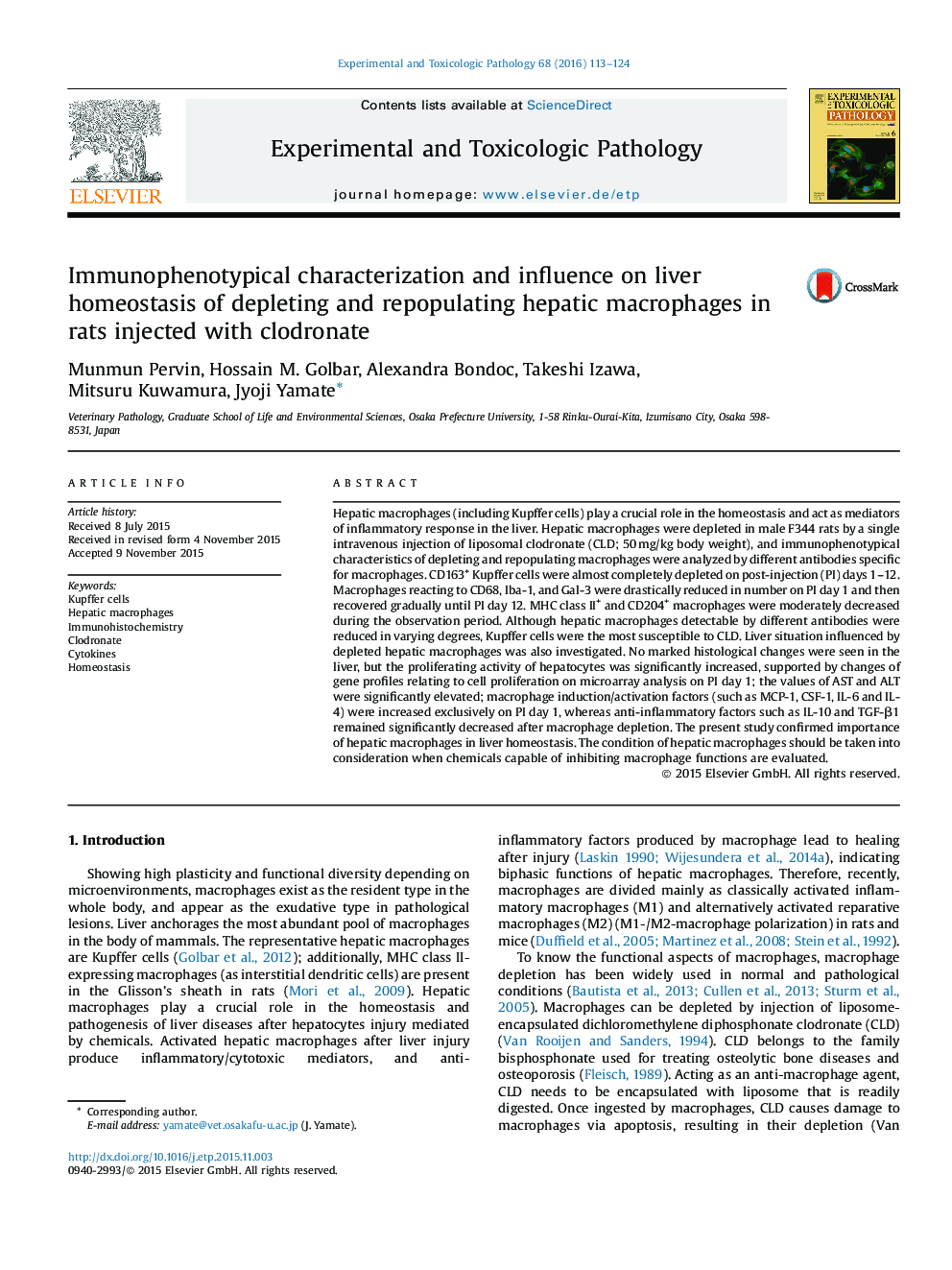| Article ID | Journal | Published Year | Pages | File Type |
|---|---|---|---|---|
| 2498793 | Experimental and Toxicologic Pathology | 2016 | 12 Pages |
Hepatic macrophages (including Kupffer cells) play a crucial role in the homeostasis and act as mediators of inflammatory response in the liver. Hepatic macrophages were depleted in male F344 rats by a single intravenous injection of liposomal clodronate (CLD; 50 mg/kg body weight), and immunophenotypical characteristics of depleting and repopulating macrophages were analyzed by different antibodies specific for macrophages. CD163+ Kupffer cells were almost completely depleted on post-injection (PI) days 1–12. Macrophages reacting to CD68, Iba-1, and Gal-3 were drastically reduced in number on PI day 1 and then recovered gradually until PI day 12. MHC class II+ and CD204+ macrophages were moderately decreased during the observation period. Although hepatic macrophages detectable by different antibodies were reduced in varying degrees, Kupffer cells were the most susceptible to CLD. Liver situation influenced by depleted hepatic macrophages was also investigated. No marked histological changes were seen in the liver, but the proliferating activity of hepatocytes was significantly increased, supported by changes of gene profiles relating to cell proliferation on microarray analysis on PI day 1; the values of AST and ALT were significantly elevated; macrophage induction/activation factors (such as MCP-1, CSF-1, IL-6 and IL-4) were increased exclusively on PI day 1, whereas anti-inflammatory factors such as IL-10 and TGF-β1 remained significantly decreased after macrophage depletion. The present study confirmed importance of hepatic macrophages in liver homeostasis. The condition of hepatic macrophages should be taken into consideration when chemicals capable of inhibiting macrophage functions are evaluated.
